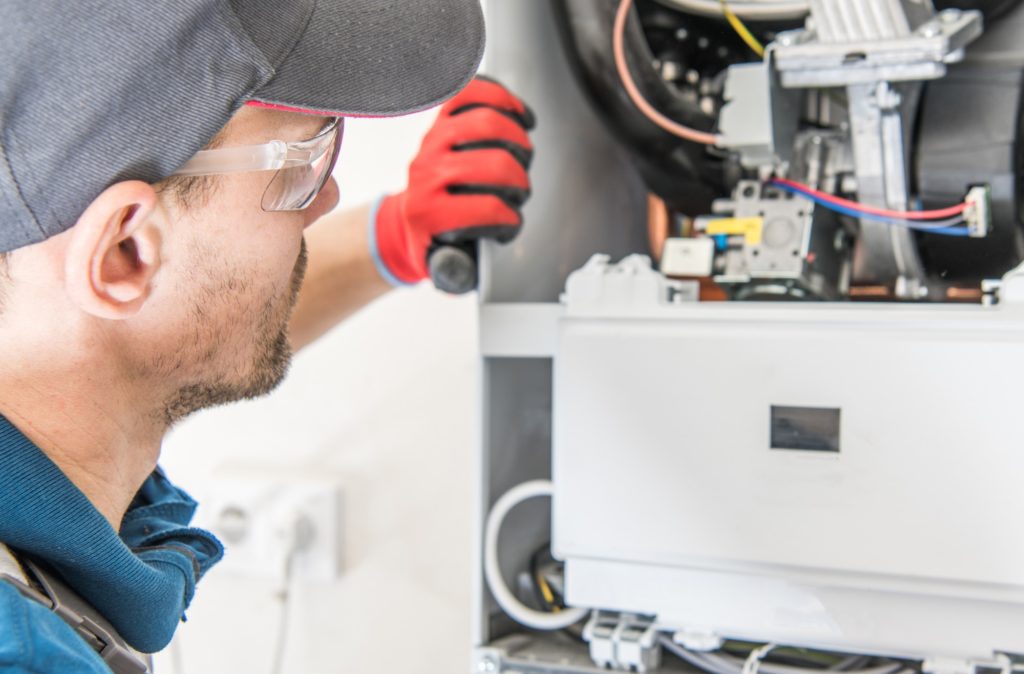It’s a cold Saturday night. You have just finished the chores and are looking forward to enjoying the night with a glass of wine in front of your furnace. You pour yourself some wine and go to turn on your furnace. But it’s not working. What sounds like a nightmare now can be your reality come winter unless you check your furnace regularly. Like everything in your house, your furnace needs care and attention, and unless you are taking care of things, it will turn on you.
Check your filter regularly: Your furnace’s filters are undoubtedly one of its most important parts. It helps to clean the air and keep your furnace working properly. But, over time, it can get clogged with dirt and dust. This can cause your furnace to work less efficiently and can lead to a house fire. As a rule of thumb, check your filters every two weeks and make sure that they are working as they should.
Inspect Your Pipes: The pipes that carry the fuel to your furnace should be checked for leaks or cracks at least once a year. If you find any, have them repaired immediately by a professional. Remember, pipe leaks can be dangerous and should be taken care of immediately.
Check for Gas Leaks: A gas leak is one of the most dangerous things that can happen with your furnace. If you smell gas, open all the doors and windows immediately and evacuate the house. Then, call your gas company and don’t turn on your furnace until a professional has inspected it and made the required repairs.
Clean Your Furnace: A clean furnace is a happy furnace. At least once a year, you should deep clean your furnace. This includes vacuuming out the inside and the blower and motor. You should also wipe down the outside of your furnace with soapy water.
Check Your Thermostat: A working thermostat equals less energy bills. If your thermostat starts malfunctioning, your furnace will have to work overtime to heat your home, leading to higher energy bills and unnecessary wear and tear on your furnace.

Update Your Insulation: Proper insulation is key to keeping your home warm in the winter and cool in the summer. If your insulation is old or not installed properly, heat can escape, causing your furnace to work overtime and driving up your energy bills.
Check for Drafts: Another way heat can escape your home is through drafts. Check around doors and windows for any gaps where heat might be escaping. Also, check the weather-stripping around doors and windows to ensure it’s in good condition.
Seal Your Ducts: Leaky ducts are another way heat escapes from your home. You can seal them yourself with mastic sealant or have a professional do it.
Caulk Windows: In addition to sealing your ducts, you should also caulk any cracks around your windows. This will help to keep heat in and lower your energy bills.
Duct cleaning: Although not directly related to your furnace, duct cleaning is important for keeping your home warm in the winter. Dirty ducts can circulate dust and dirt throughout your home, making it harder for your furnace to do its job. They can also lead to allergies and respiratory problems. So, it’s important to have them cleaned at least once a year.
Using smoke and carbon monoxide detectors: Last but not least, you should always have working smoke and carbon monoxide detectors in your home. These can save your life in case of a fire or gas leak. Regularly check their batteries and replace them when needed.
Dirty furnaces can have a major impact on indoor air quality. Dust and other particles can build up on the furnace’s heat exchanger. When the furnace turns on, these particles are blown into the air and circulated throughout the home. This can cause respiratory problems for people with allergies or asthma. In addition, a dirty furnace is less efficient and costs more to operate.
Check and clean the filter monthly, especially during heavy use periods like winter. A clogged or dirty filter will make your furnace work harder and could lead to a breakdown. Dust and dirt can build up on the coils and other parts of the furnace, making it less effective at heating your home. In extreme cases, this build-up can even cause fires. Inspecting and cleaning your furnace regularly will help it run more efficiently and last longer. Before you turn on your furnace for the time each season, take a few minutes to inspect it for any signs of damage or wear and tear. If you see anything that looks out of place, hire a professional HVAC technician to look at it before using the furnace. And if that’s too much for you, schedule an annual furnace check with your local duct cleaners. They will take care of things for you.






